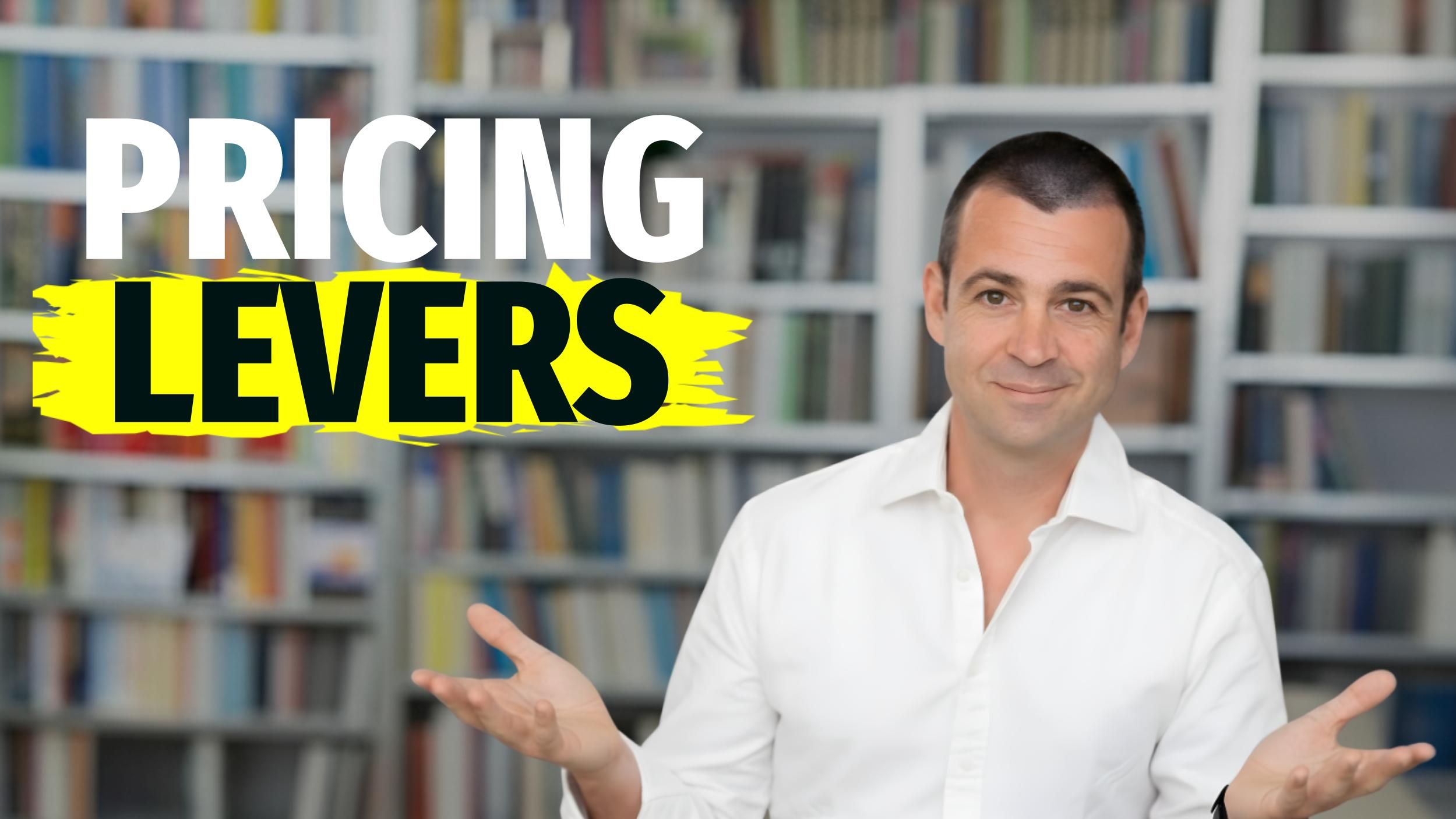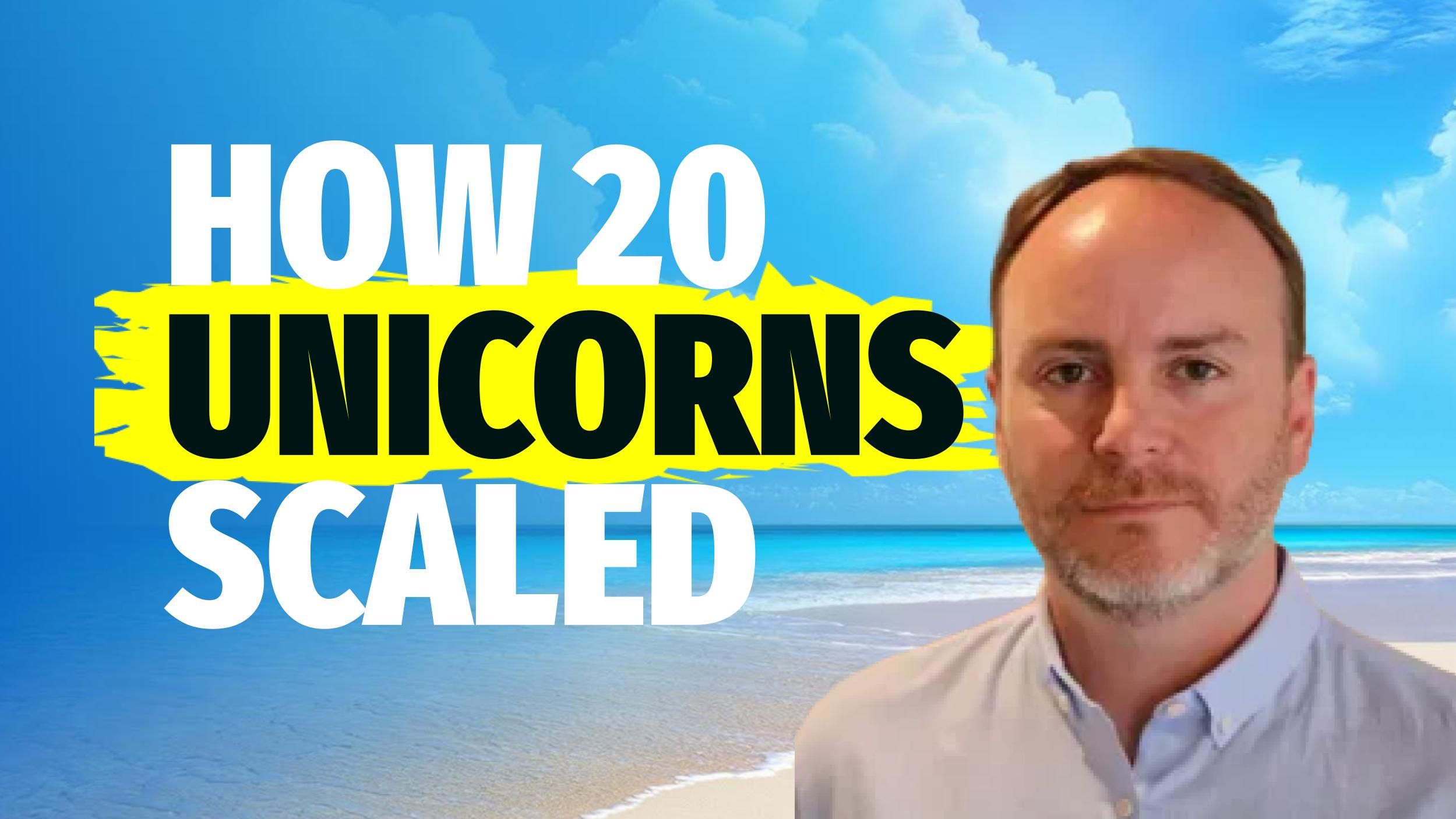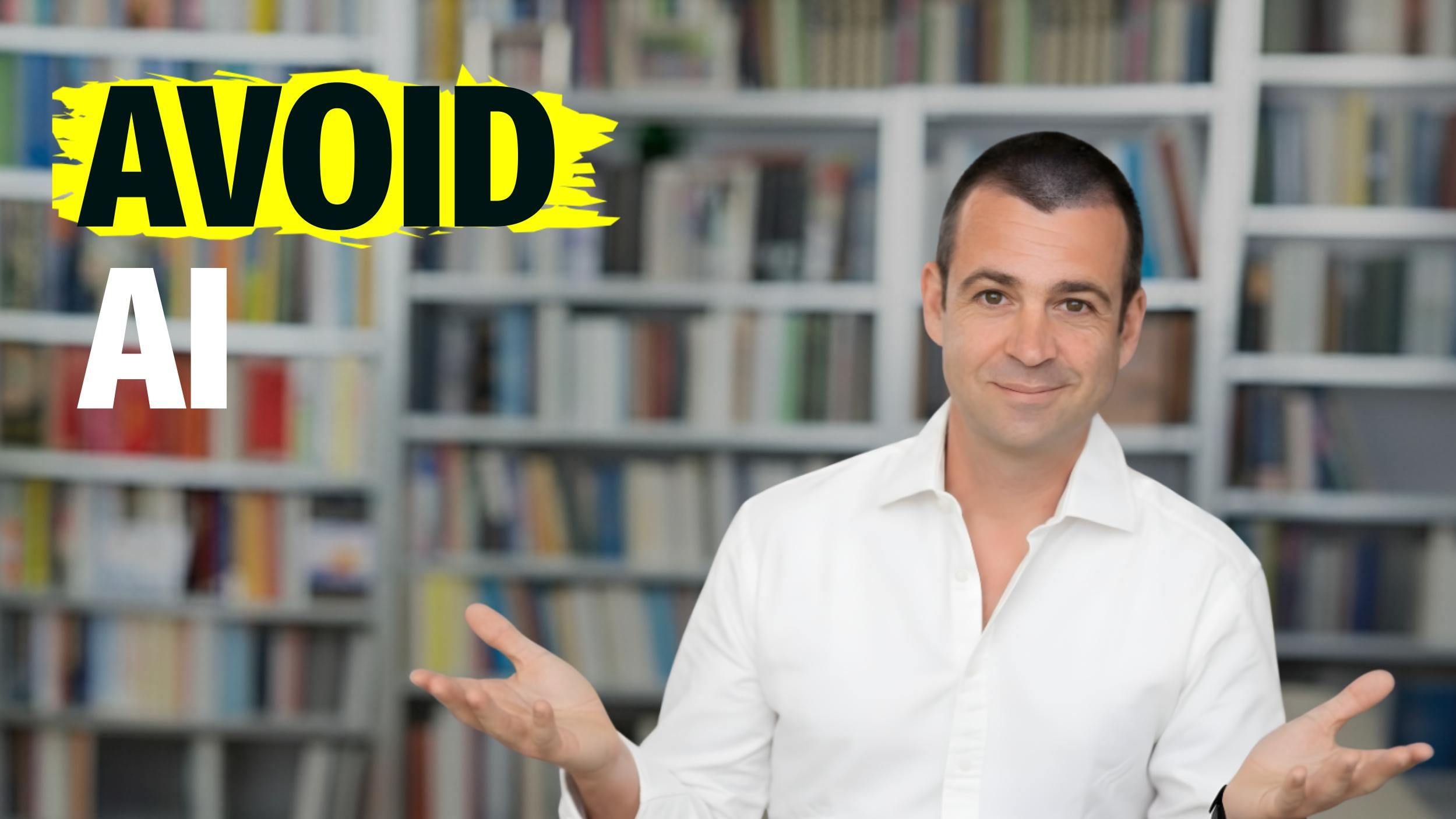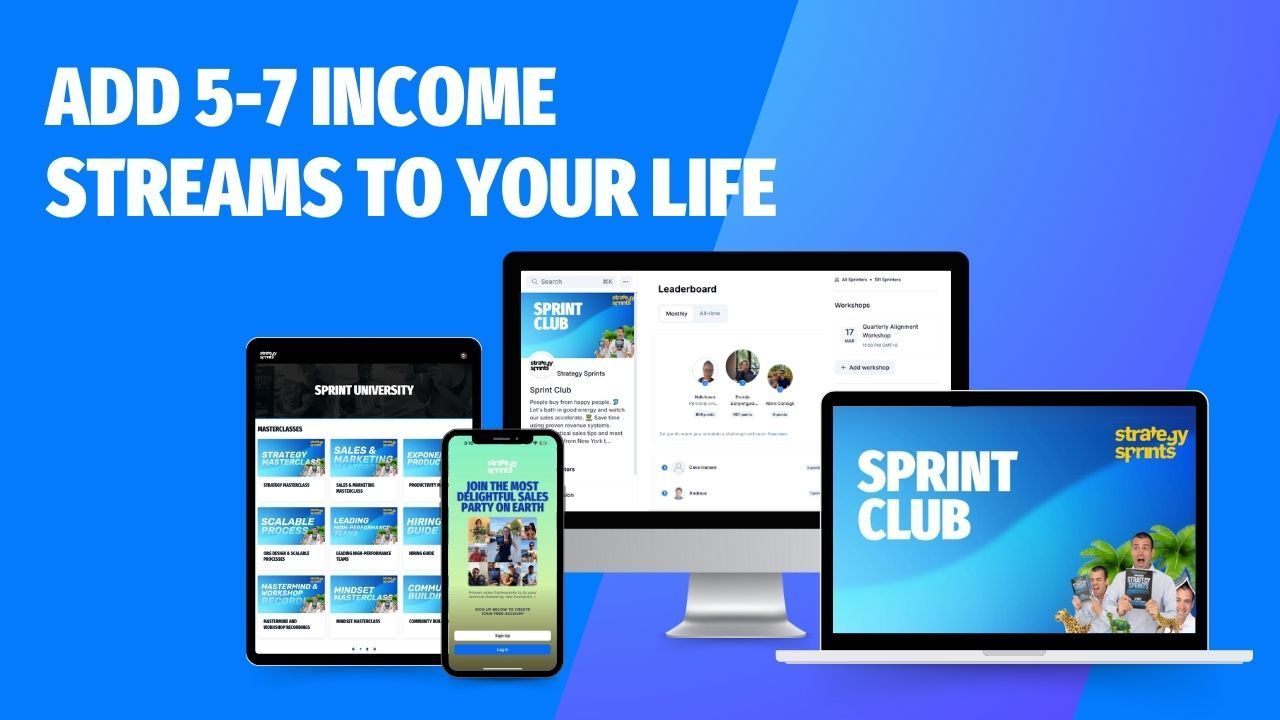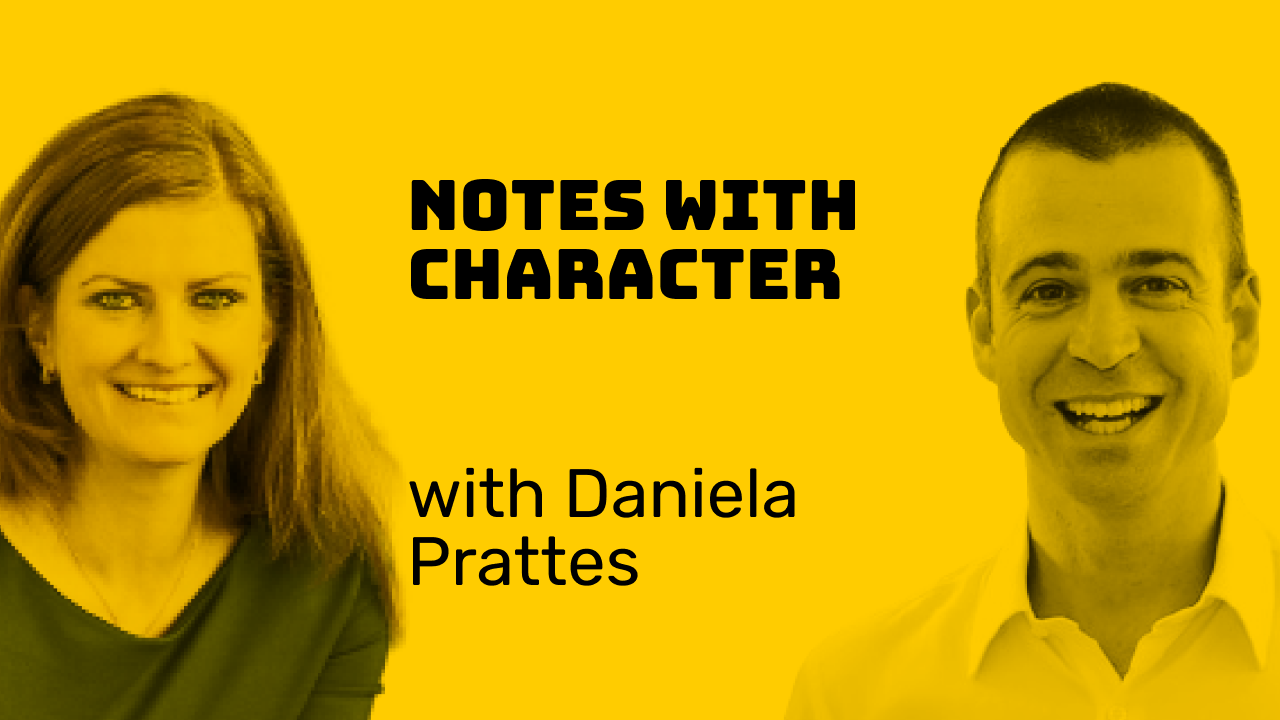
Notes with Character, Daniela Prattes | STRATEGY SPRINTS 189
In this episode, Simon welcome Daniela Prattes, the co-founder of Xaraktiras. Xaraktiras is a leading notebook design company that focuses on inspiring customers or writers with unique paper design. With the specialized paper design, it is no doubt that people can come up with the most innovative ideas. Design is intelligence made visible. Let’s listen to Daniela’s sharing on fragment yourself.
3 Valuable Insights
- Fragment yourself
- Being in aesthetic self-perception versus being dynamic self-perception
- Diversify the channels of your story step by step to reach more and more of your target group and future customers.
Show Notes
(00:10) -Simon: Welcome back everybody to the Strategy Sprint podcast. I'm your host Simon Severino. And today my guest is media manager for 15 years now, an entrepreneur running Xaraktiras. A web shop for design paper, notebooks, and more to come. She has two small kids and as a hobby, she is studying law, everybody, Daniela Prattes.
(00:40) -Daniela: Hi everybody. Hi Simon. Thank you for having me. It's a great honor. I'm looking forward to our talk.
(00:45) -Simon: So cool to have you here, because you will talk about something that nobody ever talked about on the show. It's fragment yourself. But first suspects, but first, what are you currently creating?
(01:03) -Daniela: Well, actually at the moment, um, we are my husband and my sister and me were working on the distribution and the sales of our newly designed design paper notebooks. And, uh, we started last year, um, during the upcoming pandemic and we, um, our, our, our goal is to, um, to provide people who have visions and dreams for the life, with the ideal notebook to get there, to achieve their goals. And now we are diving into, um, opening, more safe journals, um, do more marketing and, um, tell more about our story because we massively, um, work with storytelling.
(01:58) -Simon: Cool. And you have also a role at sky that you will have after your maternity leave. What's your role at sky?
(02:05) -Daniela: Yes. Um, we started this family business during my maternity leave and I'm I'm still strongly connected to, um, to the television industry and my job there. And I go back in March to sky and I will get a new role and be responsible for, um, the OTT proposition OTTs, um, especial term over the top content means, um, the sky content, um, receivable over the internet and therefore will be responsible for the product proposition and, um, especially sales of course. And it's all about safety. Um, yeah.
(02:45) -Simon: And fragment yourself.
(02:49) -Daniela: Yeah, that's um, um, a very special sentence, I guess, um, to, um, most of you, um, I heard first, I think I'm nearly 10 years ago, a very popular and successful Austrian television manager had Sila, um, said it, um, and it was the era when more and more other companies, um, came into the, um, television or television video markets to offer their products, um, very niche products and, um, being responsible for, uh, one of the big traditional television companies. Then he said, well, if the market fragments, we have to fragment ourself, or you have to fragment ourself. And I was working with presumes at einstein, um, with the other, um, big German speaking television broadcasting corporation. And, um, this sentence, um, is with me now, um, since I first heard it because it's still so true and it's, it goes together with the big trench, um, individualization and it's, um, and it really helps me now also for collectors are, um, design and notebook marketing and sales, um, because we use storytelling, um, as a main communication marketing tool.
(04:26) -Daniela: And, um, television is all about stories. So, um, that the parallel is here. Um, I can use, and we, um, we have, first of all, at the beginning, we have to focus on one channel, but we have to fragment ourselves as well. So we have to go on different channels to reach people with our stories. And this is, um, simply, um, um, compared with my television experience, the same television traditional television companies, um, have to do for nearly 10 years now. So, um, uh, to fragment the channels, where to spread the stories. And it's so true if you're working on a storytelling brand as well,
(05:14) -Simon: So fragment yourself. So basically go where, where, where the people go wherever.
(05:21) -Daniela: Yeah, so, um, I come from a very traditional television, um, company. I was with prosims at eins for nine years. I stayed there for nine years. And, um, so this is it, it was very important, um, for procedures that I answer to, and also for the RTL group and all the other traditional media companies over the whole world to, um, accept the situation that, um, devices are, are getting more and more important for people. So, um, the smartphone, not only the TV set, the smartphone, um, the tablets, um, Mac books, PCs, and the traditional television channel, um, is also kind of disrupted with the simple internet. And, um, we, we had to learn, um, working in a television industry to provide our content overall channels for all devices and just was a kind of a hard trap at the beginning. It is also, and it's still, it's always an expensive job because, um, you have to maintain your reach as a big media house, um, with more invest, but, but you can't, um, do you, you can't find another path, so you have to go this path down, you have to more invest.
(06:47) -Daniela: So, um, to, yeah, to keep up with your high reach. And it's also true for, um, a small company as we are not at moment, um, using story telling it's not enough to pick one communication channel and spread the story. So we have a web shop. So obviously we start to tell our story on our website, but we also have to think about, and to play on other communication channels. On, for example, the social media platforms are, um, um, on the the newsletter tool. So the democratizing tool tools, you know, but I'm really focused on spreading the story, um, to reach your target groups, which are always no matter what target group you have to find, um, are, um, put together from more the various different, tiny target groups. And this is so true in every part of your life, because individualization is always going on.
(07:57) -Simon: Absolutely. So for TV, I guess it's, it's clear that it's 15 years that we, as a family don't have a TV. And the last five days we were watching the news because you know, new in operation and capital excitements going on there will there be a civil war. So we were watching everyday somewhere, but it was on some form of iPad in the kitchen was always going on MSNBC, but we were not sitting all together in front of one TV since 15 years.
(08:29) -Daniela: Yeah, and then this situation is exactly the one the traditional TV houses had to solve.
(08:36) -Simon: Exactly. And even sometimes on the kid's iPad because I was cooking and then I was telling him, Hey, can I, can, I quickly see a CNN, I want to see what's going on. And then my kids was okay, you're going to have my ipad for two minutes. And that's fragmentation. Okay.
(08:52) -Daniela: It's um, you can, you can use other words as well. Um, you can use splits for example, to have a very simple one, but that's the, that, um, the term, um, this, um, uh, TV manager can have Sila used and, um, other managers picked it up. And so, yeah, I, I have it in my mind also for our small business to, to grow it and to, to spread, to spread the messages on, on different channels.
(09:24) -Simon: And so for your notes with character, how are you going to split?
(09:29) -Daniela: Well, our, well, our first channel, as I mentioned before is our website. And, um, we, I started a couple of weeks ago. I started a blog series called character after week, um, where I interview or my husband and my sister interview people, um, about, um, their goals in life, how to reach it and what a role, what a paper notebook, um, what roles a paper notebook play in the story. And we, um, we shared this interview for example, on LinkedIn. So this was the first step to get out of the website. And, uh, my, my, my sister manages our Instagram channel and, um, she works more with the product role does and spreading the message so achieve your goals with, um, uh, appropriate texts. I'm going to get a risk to photos. So I I think you, I guess you now think, well, that's not something you, um, you have to do this, um, today to reach a target groups, but it's, um, for me, it's hard.
(10:44) -Daniela: It's just, you have to start with one channel, like in television, you had the traditional, um, TV distribution, the traditional TV signal. And from there, you have to spread your message, um, for different devices. And it's always, you have, you have to have always the, the consumption situation, your mind. So this is also something I learned from my TV, um, on gosh, ma um, always be aware, what is the situation? Um, your target group is now being in when getting contact with your stories and yeah, you have to design your messages for this situation, for the situation itself, for the device it's used for the channel, um, the story's going to the device. So yeah, you have to design the process for yourself,
(11:42) -Simon: Context, context, context. Cool. All right. I'm excited who you pick for this strategy award after one word from our sponsor. Who gets nominated for the strategy award?
(12:06) -Daniela: Well, um, this was a tough question for me here, but at the end, I have one clear answer. It's Thomas eberling, the former CEO of proceedings at ants. Um, he, he, um, he really inspired me. I've worked with Christine at Ants when he was CEO of the, of the group. And he was a very known as a so-called micromanager. Um, you, you can think, um, well, well, it can be a good thing or a bad thing being a micromanager, but what I really, um, admire was that he, he never, um, used his CEO position to demonstrate being a CEO, but he really got into the topics like fragment yourself to understand the new technology. He, he tried it out himself. Then he wrote emails, um, in the evening when he said, um, at home and tried it out. And it was, um, it was really inspiring how to manage, um, on the top position, uh, such, um, corporation as a CEO, by simply doing the things other people do, which I want to reach with my programs. And I guess, um, this is not, this is nothing. That's all CEOs in this world to really, um, sit down themselves and get into the situation people are in. As I mentioned before, to know how to get, um, your product, your service in the right way to your target,
(13:54) -Simon: Beautiful. Some people call this servant leadership and definitely it has, it has the strong part that he really connects to what this is really all about. Yeah. He's not disconnected. And it's, well, why people try not to micromanage is because they need time to do the, the job. Then only CEOs can do vision hiring, firing, and, uh, but, uh, he, he, he managed to do both. So that's one of them.
(14:26) -Daniela: Yeah, he did all. And, and, um, um, I w I was really, um, a great supporter of him as a, as our CEO. And he had a lot of admire us, um, in, in the corporation, um, because he wasn't a man showing up on any parties or our dinners or something like that, because in the media industry, there's lots of stuff going on like this, but you really, yeah. You really focused even his spare time on understanding the way the company has to go
(15:02) -Simon: Strong. Cool. And thank you. And what are three books that inspired you?
(15:09) -Daniela: Uh, I like this question because I read a lot in diary. I really appreciate recommendations from other, so I feel honored to give recommendations now myself. So I'm obviously the one I have to show you. This one thing is building a straw as a story brand from Donald Miller. Um, my sister read it, and then she handed it over to me because, um, we already decided to, um, to build our company, exacted us on storytelling. And I read this book in a couple of days, and then I made notes, um, um, to have all the concepts on one piece of paper. And then based on these notes, I wrote down the guideline for our storytelling. So this was really helpful. This book,
(16:02) -Simon: I, I heard it as an audio book while I was running. I think I did it in three rounds. And then what, the main thing that I got out of it is you need an enemy, no story without the nemesis
(16:17) -Daniela: And your product is not the hero. It's your target group, all the people you are designed to product for, they are the heroes. So then, um, I read a lot, um, regarding personal growth and, um, before my first child, um, before I received my first child before the birth of my daughter, um, uh, I'm so happy that I finished Carol Dweck rec. Um, it's in English, English, it's mindset, um, and, um, character Beck is famous for her, um, um, scientifical work and her, um, psychology, um, dealing with, um, your mindset and the perception of yourself. And, um, it's about, um, being in, um, aesthetic self-perception versus being in a, um, I have to find the word now static versus dynamic self-perception. And this book really helped me to recognize that, um, regarding certain parts of my life, I was in a very static mindset, that it means that, um, um, having to feeling that I have to be something which I can change and the dynamic, um, self-perception.
(17:47) -Daniela: Self-perception is all about you can change anything you want to change, um, with yourself. And it's really helpful. Um, this scheme is really helpful also for education. So I was really happy to finish, finish this book before the birth of my first child, because, um, I, I, not only I based my, my personal development on the scheme, but also, um, my education concept for my two Childs and for my two children. And, um, the, the third book is my current reading. It's, uh, the book from Galinde Keitenbrunner, the Austrian woman who, um, did all the $148000, um, over the world. And, um, well, I will finish it this evening. That's one chapter ahead. And it's about her experience. She tells, um, about her expeditions to Mount Everest and all the other $8,000. And, um, it's really helpful, um, to, to get to know her strategies, um, regarding expeditions, where you have to take your time, wait, four weeks, if the weather gets, um, um, bright to take a medium risk. So you can't do it without risk, but, um, you will die if you take too much risk. So, yeah.
(19:22) -Simon: Cool. What is something you recently changed your mind about?
(19:27) -Daniela: Well, this, I changed my mind about I'm able to network by the digital channels. How comes this? Um, I'm for modern, uh, for about a year now, I'm in maternity leave. And last year when the first lockdown came, um, I, I had made a decision. I want to network again, to, to have my have important people on hands when I go back into my shop or, or when I work on our new business and then came to first lockdown and then I was stand and said to myself, Oh, wow. I recently, um, took the decision. I want to network again. And now I can't sitting at home. And then I changed my mind about it and said, well, I can, I use the internet video conference tools. Yeah. And my devices and our started doing it.
(20:35) -Simon: Absolutely. Absolutely. And what, what can you, what, what's next in your journey with your startup? What, what topics are you excited about? Um, exploring and solving?
(20:49) -Daniela: We are, well I'm regarding surrounders our design, um, paper notebook is I'm looking forward to, uh, to spread our story on more channels. It's, um, it's hard work because it's all very time-consuming.
(21:10) -Simon: Can you show, show one, one? Yeah.
(21:17) -Daniela: My favorite one is this in a Waze Rose gold. Yeah. So a trend color from the, um, from the clothing. Yeah. And it says character, that's the female edition. So with the, if the female iconic graphic, yeah. Um, it's wrapped in paper, so does this, um, no foil, but paper. Um, yeah, you have very nice, smooth haptic experience and it has, um, premium, um, pages inside. So it's, uh, um, far better paper than other notebooks. And I know from my usage yeah.
(22:03) -Simon: Does it smell good? It looks good. Does it smell good for everybody who cannot smell not right now?
(22:07) -Daniela: No, no. It has no special smell. So
(22:12) -Simon: It's also the masculine object.
(22:15) -Daniela: Um, yes, there is, but I don't have it here on the table. Nope. Sorry. Don't have it on the table though.
(22:24) -Simon: And that's white or gray or black.
(22:27) -Daniela: Uh, we, we have, um, for the female edition, we have Rosie called I collect those, which was kind of, um, uh, we, we tried it out and it really worked out. So it was a surprise and dark blue, um, for people or women who don't want the light color, but a more dark, a dark color. And the pure collection is that the very simple design is in black, in dark blue. And in platinum,
(22:56) -Simon: Ah, did you do research first and then choose the colors or you chose the color that we know.
(23:02) -Daniela: Um, we, we did a little research on how people deal with the word character and all, um, topics connected to it. So what are their association with it? Um, for our storytelling and regarding the, the, our, um, the color palette we choose, it was, um, market research in the way that we looked, for example, into the clothing industry, or also the jewelry industry. What colors are famous at the moment are popular at the moment. And this is, um, this is how my sister came up with eucalyptus for example, because we saw it in the, in the fashion industry. Cool. Yeah. Yeah.
(23:52) -Simon: Where can people buy it?
(23:55) -Daniela: Um, on Xaraktiras.com um, on our web shop. Um, we have, we still have to translate it into English, so we wanted to focus on the German speaking markets first and yeah. As every, everything is very time consuming, we postponed the English translation, but it's yeah, it's very self-explaining so you can buy it on Xaraktiras.com or just simple write me a message and I will make sure that you will get one via email contact.
(24:30) -Simon: Absolutely. Yeah. They look stunning and who will be my next guest?
(24:36) -Daniela: Well, um, I have two suggestions first, um, offer my twin sister Cornelia, Cornelia Moza. Um, she, she now she's working in the farmer industry for 15 years now, so she has a totally different backgrounds than I have, and it's always, um, very, um, helpful for me talking to her. She has a totally different experience than I have, and I think, um, all her experience and have you, especially her view on things now, um, in context of the pandemic and the, and the health topics. And so it's, um, really good to talk to her. And my second suggestion would be Gunter Schmutzberger. This is, um, a study fellow of mine from my former media management studies. I interviewed him today in the morning for our block, serious character of the week. And he's, um, um, he's a business consultant himself and he is, um, very, uh, very special view on different things like he quoted for example today. Um, the psychologist, um, who said that, um, um, ideas are in the world. That's, that's a free translational ideas. They, um, they just meet you. So don't think that, um, ideas come out of yourself, you meet the ideas, they are already out in the world. And if you meet an idea, it's kind of a, yeah. It's, it's your obligation to do something with it, with it. So yeah, I can recommend those two.
(26:22) -Simon: Super cool. Thank you so much. Is there anything I forgot to ask you?
(26:27) -Daniela: Oh boy, that's the hardest question? Um, well just, um, wanting to get back to my, um, message, fragment yourself, or, um, fragment the, your communication channels. It's, um, it's really not something new, I guess, for, for your audience, but I think it's a new, um, point of view, just start with one channel as the traditional television industry did, and then, um, diversify, fragment, um, the channels of your story step by step to reach more and more of our target group and your future customers.
(26:27) -Simon: Thank you so much for being on the show Daniela.
(26:27) -Daniela: Thank you Simon for having me. Bye.
Get our expert sales tips delivered
By submitting you agree to receive our weekly Strategy Sprints Newsletter as well as other promotional emails from Strategy Sprints. You may withdraw your consent at any time via the “Unsubscribe” link in any email or view our privacy policy at ant time.


